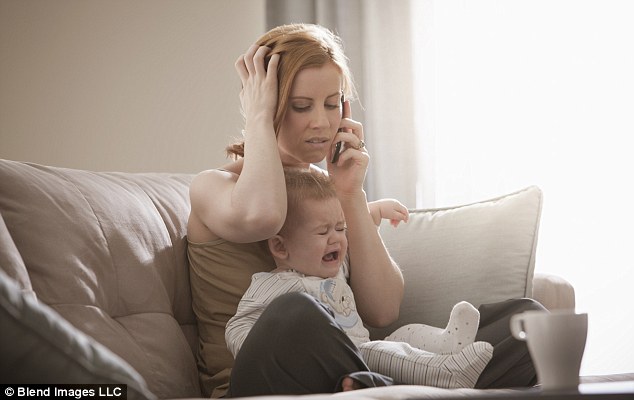The birth of a baby is a miracle looked forward to by many women and is usually accompanied by several emotions, usually excitement and joy. so it can be upsetting and confusing for some women when they find themselves actually feeling the opposite.
Many new moms experience the “postpartum baby blues” after childbirth, which commonly include mood swings, crying spells, anxiety and difficulty sleeping. Baby blues typically begin within the first two to three days after delivery, and may last for up to two weeks.
But some new moms experience a more severe, long-lasting form of depression known as postpartum depression. And in some rare cases, an extreme mood disorder called postpartum psychosis also may develop after childbirth.
It is important to note that these are common illnesses that 15 to 20% of new mothers have, and so it’s really not that unusual, the only problem is that just like other mental illnesses they are not well recognised or talked about and so most women do not even know that they can seek help and they are completely treatable.
Sometimes it can be hard to tell the difference between clinical depression and the normal stress and exhaustion of new parenthood. But if a woman who has recently given birth is having feelings of sadness or despair which are so strong that they prevent her from being able to do her daily tasks – such as caring for herself and others – she could have postpartum depression (PPD).

Symptoms
Many people have a feeling like the ones listed below every now and then because we are all human and we all have bad days. However, Postpartum depression and anxiety are not just bad days. Women with PPD or anxiety have symptoms like these most of the time, for a period of at least 2 weeks or longer, and these symptoms make it feel very hard to live a normal life each day.
- Extreme sadness, emptiness, or hopelessness
- Crying all the time
- Loss of interest or lack of enjoyment in your usual activities and hobbies
- Trouble falling asleep at night, or trouble staying awake during the day
- Loss of appetite or eating too much, or unintentional weight loss or weight gain
- Overwhelming feelings of worthlessness or overpowering guilt
- Restlessness or sluggishness
- Difficulty concentrating or making decisions
- Feeling that life isn’t worth living
Other possible signs of depression include:
- Being irritable or angry
- Avoiding friends and family
- Worrying excessively about your baby
- Being uninterested in your baby, or unable to care for her
- Feeling so exhausted that you’re unable to get out of bed for hours
In extreme cases, some women with PPD experience delusional thoughts or hallucinations and may harm their baby.
If you (or anybody you know) are having moments where it seems like you can see or hear things no one else does, if you are feeling paranoid as if others are out to get you, if you are feeling that you or your baby are somehow related to the devil or God in some way, or if you are having thoughts of harming yourself or others, it’s important to reach out for help immediately. These symptoms require immediate attention as they could be signs of postpartum psychosis. If you have these symptoms, your illness has the potential to take over and lead you to do things that you wouldn’t normally do. In order to avoid that it is important to reach out for help right away so that trained professionals can help you get stabilized and healthy.
Causes
PPD results from a combination of hormonal, environmental, emotional, and genetic factors that are beyond anyone’s control. Some women might feel somehow responsible for having PPD, but depression doesn’t happen because of something you did or didn’t do.There’s no single cause of postpartum depression, but physical and emotional issues may play a role.
Physical changes. After childbirth, a dramatic drop in hormones (estrogen and progesterone) in the body may contribute to postpartum depression. Other hormones produced by the thyroid gland also may drop sharply — which can leave one feeling tired, sluggish and depressed.
Emotional issues. Being sleep deprived and overwhelmed, many new mothers may have trouble handling even minor problems. The sheer physical exhaustion that can result from taking care of a newborn is not something many women can prepare for. There’s also the emotional adjustment of becoming a parent. Some may be anxious about their ability to care for a newborn. Some women may even feel less attractive or struggle with their sense of identity. Any of these issues can contribute to postpartum depression.
To be continued






